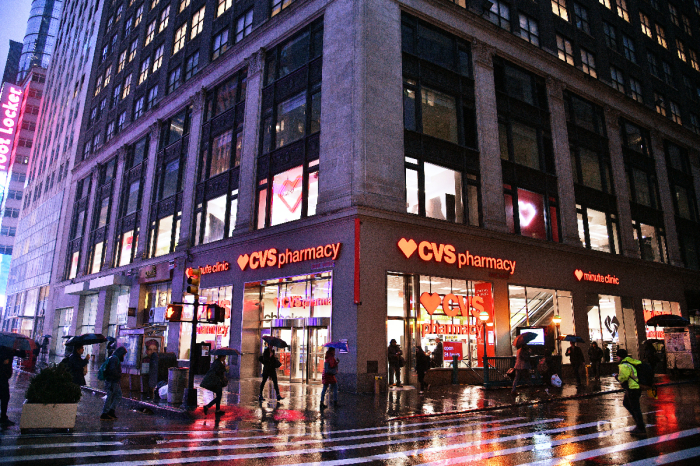Doctors warn women about abortion pill dangers as FDA changes dispensing rules

A group of pro-life doctors are warning about the risks associated with taking abortion pills, especially without medical supervision, after the Food and Drug Administration finalized a Biden administration rule change to make the drugs available at pharmacy chains and mail-order companies nationwide.
The American College of Pediatricians released a 24-page report Tuesday titled “Chemical Abortions: With and Without Medical Supervision,” in which Dr. Jane Anderson, co-author of the review, addressed the implications of the FDA's decision, warning, “Women are deeply harmed by chemical abortion.”
“This disregard for human life and safety betrays the purpose of the FDA — safety — and reveals what chemical abortion truly serves: politics and profit, not people. … Chemical abortion pills are intended to result in the death of a human being. This is antithetical to the practice of medicine. Instead of protecting a mother and her baby, chemical abortion puts a woman’s life at risk and makes her the facilitator of her child’s death.”
Anderson’s paper, which she co-wrote with Dr. Patricia Lee June and Dr. Scott Field, takes information directly from the website Just The Pill and the warnings that come with the drugs used to induce an abortion.
“Medication abortion is the term used in most medical literature as well as by Planned Parenthood to describe those abortions induced by the use of two chemicals — mifepristone and misoprostol,” the document states, adding that “chemical abortion,” “medical abortion” and “abortion pill” are the most commonly used synonyms for a medication abortion.
“Bleeding, cramping, and abdominal pain are commonly associated with a chemical abortion, and approximately 8% of women will experience bleeding for more than 30 days afterward,” the paper states. “Planned Parenthood acknowledges the following possible complications after a chemical abortion: bleeding, infection, allergic reaction, retained fetal tissue, and incomplete abortion.”
The side effects of mifepristone and misoprostol, the abortion-inducing drugs taken within 24 to 48 hours of each other, are very similar. Common side effects of mifepristone include “nausea, vomiting, abdominal pain, diarrhea, fever, chills, fatigue and headache.” Common side effects of misoprostol, which results in the expulsion of the preborn baby’s remains from the uterus, include “nausea, vomiting, diarrhea, headache, dizziness, fever and chills.”
Misoprostol can also cause more severe side effects such as “hypotension, myocardial infection, uterine rupture and pulmonary embolism.” In rare cases, mifepristone can cause a “rare, serious, and usually fatal infection with Clostridium sordellii.”
The American College of Pediatricians also compared the safety of chemical abortions and surgical abortions. It cited a 2015 study conducted by Planned Parenthood at Los Angeles that found “the medication abortion group was more likely to undergo an unanticipated aspiration, for ongoing pregnancy or persistent pain, bleeding, or both (2.1% compared with 0.6%).”
In a previous interview with The Christian Post, Sue Turner, director of Physicians for Life, said the FDA's earlier decision to expand the use of abortion-inducing drugs made them “less effective," requiring abortionists “to also perform a surgical abortion, which meant that women were being charged for both chemical and surgical procedures.”
The American College of Pediatricians study also determined that the likelihood of an adverse event following any method of abortion was “low at 1.9%” but acknowledged that “this risk was higher in the medical abortion group than the surgical abortion group.” The academic review also noted “a six-fold increase in adverse events in the patients who had a chemical abortion.”
“Induced abortions, whether chemical or surgical, can have serious complications that include hemorrhage, infection, and incomplete abortion,” the paper concluded. “These complications may be increased when women self-administer chemical abortion drugs without [the] benefit of an in-person evaluation by a health care provider.”
The Risk Evaluation and Mitigation Strategies (REMS) protocol previously required that abortion pills be dispensed in a healthcare setting until the FDA permanently lifted those requirements in 2021. In addition to allowing women to obtain abortion pills through the mail without seeing a doctor first, the 2021 modification of the REMS added a requirement that pharmacies dispensing chemical abortions be “specially certified.”
In response to the FDA allowing certified pharmacies to dispense abortion pills, two of the nation’s largest pharmacy chains have announced their intention to take steps to offer the drugs by prescription at their stores.
Walgreens released a statement declaring that “we are working through the registration, necessary training of our pharmacists, as well as evaluating our pharmacy network in terms of where we normally dispense products that have extra FDA requirements and will dispense those consistent with state and federal laws. CVS said it intends “to seek certification to dispense mifepristone where legally permissible.”
Major pharmacy chains’ rush to embrace the option to dispense abortion drugs has resulted in backlash from pro-life groups, including the Progressive Anti-Abortion Uprising, Rehumanize International, the Society for Truth and Justice, the Pro-Life Action League, Pro-Life San Francisco and Survivors of the Abortion Holocaust that have partnered together to launch the #StopAbortionRx campaign.
A collaborative effort among pro-life groups to oppose the sale of the abortion pills in pharmacies, the campaign calls on pro-life Americans to “protest outside your local CVS or Walgreens pharmacy,” “post to social media with the hashtag #StopAbortionRx to raise awareness,” “call your local pharmacy and demand they cut ties with the Abortion Industry” and “boycott CVS and Walgreens until they stop taking steps to sell abortion drugs.”
The #StopAbortionRx campaign will host a nationwide protest on Feb. 4 in several major cities including Washington, D.C., New York City, San Francisco, Boston, Austin, Detroit, Indianapolis, Pittsburgh, Sioux Falls, Akron and Los Angeles.
A petition launched by the Family Research Council, a socially conservative research group, urges pharmacies not to dispense abortion pills has accumulated more than 40,000 signatures as of Wednesday afternoon. The petition includes a letter asserting that “the neighborhood pharmacy has always stood as a place of healing, where human suffering can be alleviated thanks to the dedicated work of our local pharmacists.”
“However, by selling the chemical abortion regimen, the local pharmacy will become a place of suffering and death,” the petition warned.
After lamenting that “a recent study of 42,000 abortions found that women suffered four times as many adverse side effects from abortion-inducing drugs than from surgical abortions,” the petition concluded with pleas to “stop attempting to sell these harmful drugs in your pharmacies,” “commit to keeping these drugs that end the lives of children and hurt women out of our communities” and “keep your pharmacy business a pharmacy business — not an abortion business.”
Ryan Foley is a reporter for The Christian Post. He can be reached at: ryan.foley@christianpost.com





























